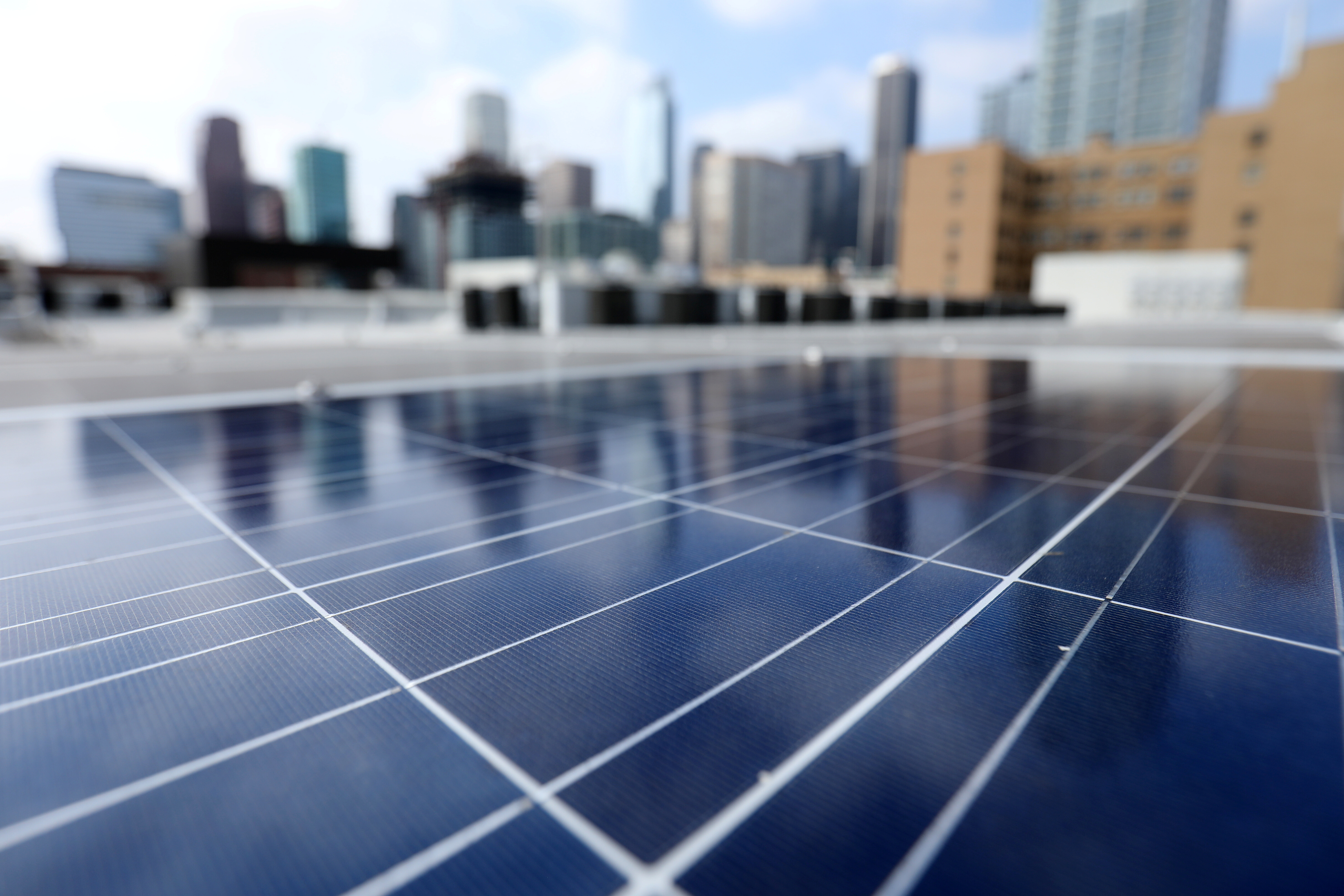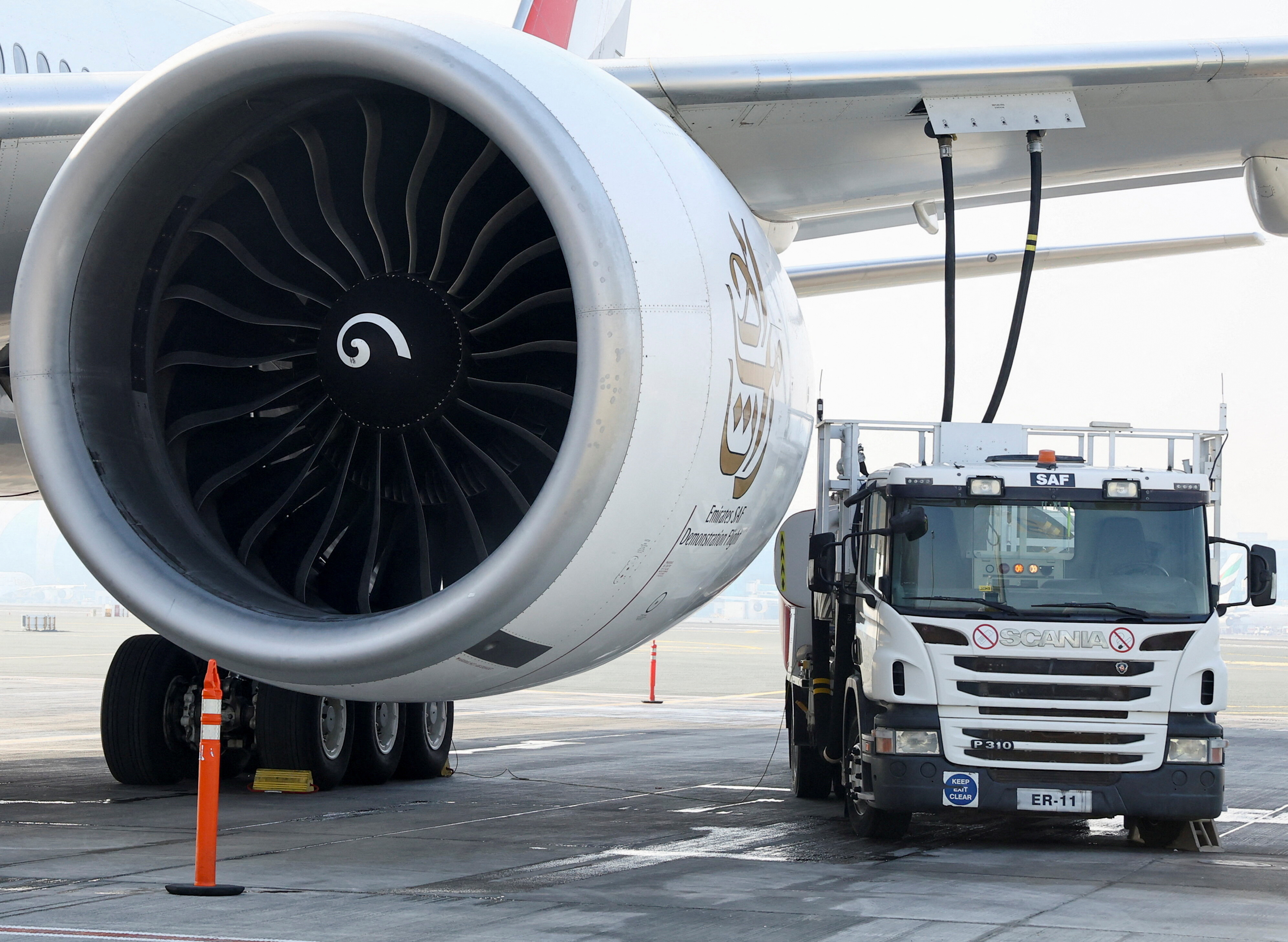What can the Middle East learn from the US shale boom?

The clear relationship between secure and competitively priced energy and economic prosperity is well defined in economic theory. This is all the more evident today in the United States, where the combination of entrepreneurialism and technology applications created the shale gas and shale oil revolutions.
Today, the US not only enjoys cheaper energy, but also enjoys a massive domestic supply security. While one can argue that the conditions in the US are unique, I would argue that very similar conditions apply to Europe and the surrounding energy-rich regions. In terms of geographic scale, the distance from Berlin to Ankara is no different than the distance from New York to Houston. While we accept the great energy interconnectivity and the highly liquid energy markets in North America, including Canada, we still debate the doability of such connectivity and market development in the context of the Europe-Middle East-Caspian-North Africa-Russia circle.
Greater energy integration in the region is beneficial to all stakeholders. From an EU perspective, more integration in the region means further diversity, and, as a result, security of supply. In the words of Winston Churchill: “Safety and certainty in oil lie in variety and variety alone.” At the turn of 21st century, the EU should ensure that it benefits from all oil and gas supply sources around the continent.
As a block, the EU is the world’s second largest oil and gas consumer, consuming some 13 million barrels of oil per day (or 15% of the world total) and about 440 billion cubic metres of gas per annum (or 13% of world total). Within a radius of 2,000- 3,000 km – the typical length of major oil and gas pipelines – the EU, mainly via Turkey, could connect to more than 50% of global proven oil and gas reserves, excluding Russia. However, Eastern European countries still remain fully dependent on Russian gas imports via Ukraine and the recent crisis highlights the importance of the need for energy supply diversity for that region.
In this context, connecting the oil and gas production regions with the oil and gas consuming markets is a core role Turkey should fulfil as soon as possible. Turkey and its core ally Azerbaijan have now forged a great partnership to finally construct TANAP (Trans-Anatolia Gas Pipeline), which is planned to carry up to 31 billion cubic metres per annum by 2026. I say finally because this comes after almost a decade of failure by European countries to support Nabucco, the Turkey to Austria gas pipeline, which would have opened the fourth corridor of gas supplies for Europe by the mid-2000s.
From Turkey’s perspective, regional energy integration also has critical importance. Turkey’s 2023 goals of increasing per capita GDP to $25,000 and exports to over $500 billion are highly dependent on regional stability and prosperity as well as a secure and competitively priced energy supply. Turkey’s immediate neighbours only (namely Russia, Azerbaijan, Iran and Iraq) hold 400 billion barrels of oil and 70 trillion cubic metres of gas in proven reserves, enough to supply Turkey for more than 1,000 years.
Turkey is now a major energy market for each of these neighbouring suppliers as well as other global suppliers of oil and gas. Turkey today is the 7th largest oil consumer in Europe after the UK, Germany, France, Italy, Netherlands and Spain, and at 46 billion cubic metres per annum is a larger gas consumer than France. With its own domestic market and creditworthiness, Turkey is a major premium market in the region which could act as anchor customer and underwriter of the development of large-scale infrastructure and energy supply projects, especially in the gas sector.
Finally, from the Middle East region’s perspective, the increased integration of energy markets, especially oil and gas markets, with EU and Turkey would contribute greatly to the region’s prosperity and stability. Energy trade and interdependency underpinned by long-term import agreements and infrastructure connectivity does indeed deliver huge prosperity as well as geopolitical stability. It could be argued that the strong relationship that exists between Germany and Russia today has in fact been forged by the interdependence of major gas trade between these two countries, which started in 1970s at the height of the Cold War.
Furthermore, given that the Middle East holds 47% and 43% of global oil and gas reserves, respectively, while delivering only 32% and 17% of respective global oil and gas production suggests that the region will benefit from new market access. For example, northern Iraq is estimated to hold more than 3 trillion cubic metres of gas resources. Channelling this gas resource to the Turkish market, and via Turkey to EU markets, would deliver huge economic and gas supply security benefits to EU and Turkey, while enabling Iraq to capture a significant market share in the world’s premium energy markets and deliver massive prosperity and wealth to its citizens. Unfortunately, such resources remain stranded in Iraq at the moment.
While these observations are not new and debated in many forums past and present, the key questions now is what policy-makers and industry players could do differently to ensure that the oil and gas market and infrastructure interconnectivity is delivered to the region now.
I would suggest three tangible solutions mainly directed to policy-makers, as I believe our industry will deliver the necessary investment within a free-market context without any state intervention:
- Liberalize energy markets in the region rapidly. For example, Turkey should aspire to create a highly liquid, wholesale gas trading market – the Turkish Gas Hub (TGH). I would argue TGH will become a dominant gas price marker not only for the region, but, through LNG markets, also a mid-point hub between Asian and European gas markets. Through TGH a transparent and liquid gas market could be created at the heart of EU-Middle East border, which could become the backbone of regional energy connectivity.
- Further deregulate energy infrastructure access, construction and expansion. Turkey has already made huge progress on this issue; however, an impartial transmission access, system debottlenecking and construction of new connections on a regulated basis are still a state monopoly in large parts of the Middle East.
- Allow private sector to play a much bigger role in the energy industry. This can be done by rapidly shifting the state’s role from a player to a regulator.
I would argue that these three steps will unleash a huge transformation in the energy industry in the Middle East region. With these changes in place, private sector investors of the region will have the confidence to make energy investments using the transparent and EU-linked energy pricing.
Author: Majid Jafar is Chief Executive Officer of Crescent Petroleum, United Arab Emirates. He is participating in the Special Meeting on Unlocking Resources for Regional Development in Turkey.
Image: An Iraqi worker checks worn-out valves at the al-Doura oil refinery outside Baghdad. REUTERS/Damir Sagolj.
Don't miss any update on this topic
Create a free account and access your personalized content collection with our latest publications and analyses.
License and Republishing
World Economic Forum articles may be republished in accordance with the Creative Commons Attribution-NonCommercial-NoDerivatives 4.0 International Public License, and in accordance with our Terms of Use.
The views expressed in this article are those of the author alone and not the World Economic Forum.
Stay up to date:
Economic Growth
Related topics:
Forum Stories newsletter
Bringing you weekly curated insights and analysis on the global issues that matter.
More on Energy TransitionSee all
Noelia Garcia Nebra
November 18, 2025






